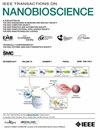基于机器学习的太赫兹元表面化学传感器的设计与性能评估。
IF 4.4
4区 生物学
Q1 BIOCHEMICAL RESEARCH METHODS
引用次数: 0
摘要
本文介绍了一种基于太赫兹元表面的传感器设计,其中结合了石墨烯和其他等离子材料,用于高灵敏度地检测不同的化学物质。所提出的传感器采用了多种谐振器设计(包括圆形和方形环形谐振器)的组合,以提高灵敏度和其他性能参数。采用随机森林回归等机器学习技术来增强传感器设计并预测其性能。优化后的传感器灵敏度高达 417 GHzRIU-1,乙醇和苯的检测限低至 0.264 RIU。此外,在不影响精度的情况下,机器学习的集成将模拟时间和计算要求减少了约 90%。该传感器独特的设计和性能特点,包括 14.476 的高质量系数,使其成为环境监测和化学传感应用的理想候选产品。此外,通过对石墨烯化学势值进行策略性调制,它还展示了 2 位编码应用的潜力。另一方面,它还展示了通过调制石墨烯化学势值进行 2 位编码的应用前景。这项工作通过提出新材料、新结构和新计算方法,为太赫兹传感应用提供了重大进展,从而开发出高性能化学传感器。本文章由计算机程序翻译,如有差异,请以英文原文为准。
Design and Performance Evaluation of Machine Learning-Based Terahertz Metasurface Chemical Sensor
This paper presents a terahertz metasurface based sensor design incorporating graphene and other plasmonic materials for highly sensitive detection of different chemicals. The proposed sensor employs the combination of multiple resonator designs - including circular and square ring resonators - to attain enhanced sensitivity among other performance parameters. Machine learning techniques like Random Forest regression, are employed to enhance the sensor design and predict its performance. The optimized sensor demonstrates excellent sensitivity of 417 GHzRIU $^{\mathbf {-{1}}}$ and a low detection limit of 0.264 RIU for ethanol and benzene detection. Furthermore, the integration of machine learning cuts down the simulation time and computational requirements by approximately 90% without compromising accuracy. The sensor’s unique design and performance characteristics, including its high-quality factor of 14.476, position it as a promising candidate for environmental monitoring and chemical sensing applications. Moreover, it also demonstrates potential for 2-bit encoding applications through strategic modulation of graphene chemical potential values. On the other hand, it also shows prospects of 2-bit encoding applications via the modulation of graphene chemical. This work provides a major advancement to the terahertz sensing application by proposing new materials, structures, and methods in computation in order to develop a high-performance chemical sensor.
求助全文
通过发布文献求助,成功后即可免费获取论文全文。
去求助
来源期刊

IEEE Transactions on NanoBioscience
工程技术-纳米科技
CiteScore
7.00
自引率
5.10%
发文量
197
审稿时长
>12 weeks
期刊介绍:
The IEEE Transactions on NanoBioscience reports on original, innovative and interdisciplinary work on all aspects of molecular systems, cellular systems, and tissues (including molecular electronics). Topics covered in the journal focus on a broad spectrum of aspects, both on foundations and on applications. Specifically, methods and techniques, experimental aspects, design and implementation, instrumentation and laboratory equipment, clinical aspects, hardware and software data acquisition and analysis and computer based modelling are covered (based on traditional or high performance computing - parallel computers or computer networks).
 求助内容:
求助内容: 应助结果提醒方式:
应助结果提醒方式:


